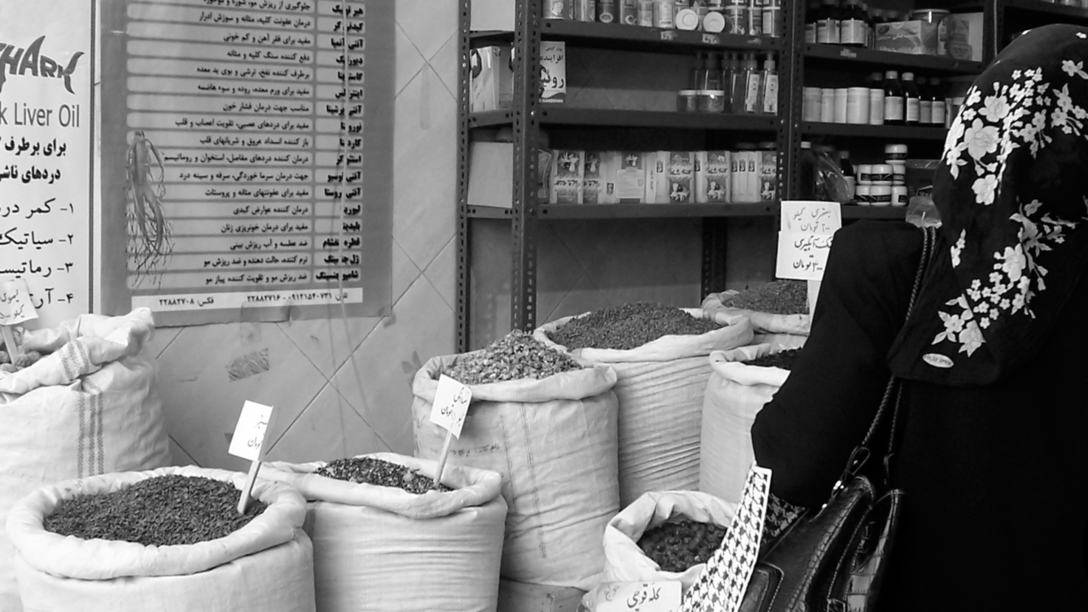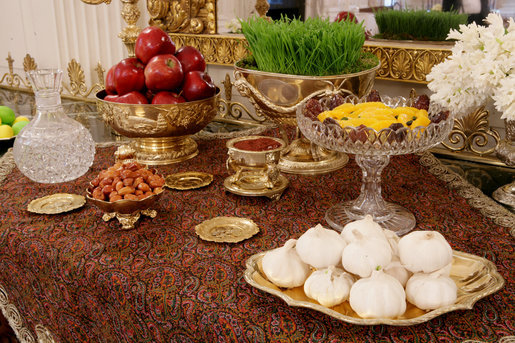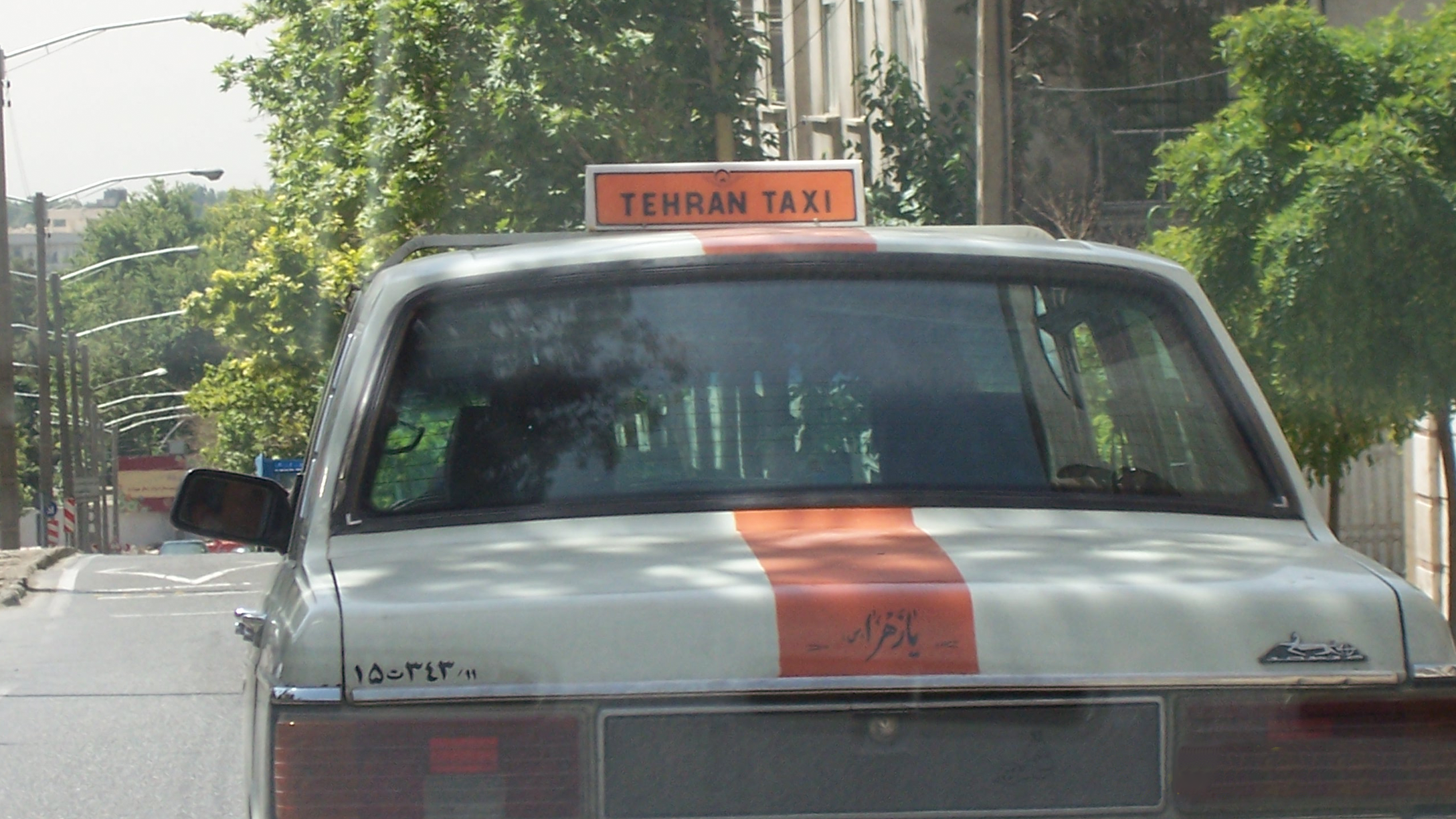When I last visited Iran, in 2008, I often forgot my headscarf. I’d go out the door and then it would hit me, like an invisible leash. I hadn’t yet developed the habit, forced upon Iranian women since the late 1970s, when Iran suddenly became the Islamic Republic of Iran. I remembered that feeling, when masks became more or less mandatory in New York. I’d prepare to leave my apartment, grab my phone and my keys, and make my way out the door. And then it would hit me.
Transformation is welcomed, sometimes, and characterized as “evolution.” Other times we’re left clinging to continuity, seeking to preserve. I still don’t know how or to what extent I will be transformed by this pandemic. But that I still have the illusion of choice means I’m not there, maybe yet—there being the point of no return. That ominous moment at the start of a scary ride. The moment that means the end of choice, the final loss of control. That’s the transformation we don’t want.
My family is from Iran, where America’s political will, in part, led to a revolution gone wrong—to the transformative point of no return. America’s will led, significantly, to Iran’s subsequent war with Iraq. America is used to having its way—or forcing it. The casualties are whatever or whoever gets in the way. America projects, when it calls the struggle with the virus a “war.” What is war, if not a battle of wills? America doesn’t want to be willed upon, but it’s happening anyway. That’s the transformation we don’t want.
America’s will led, in part, to why I was born here and not there, why so many families left there, why so many people can’t or won’t go back there, why there no longer feels like home. These are the things I have known about my family, a chronology. Then and now. But life happens, with the greatest intensity, in the middle, in the transformation. These are the things I’ve always wanted to understand. These are the things they don’t talk about.
When they left Iran, they were students, hopeful. Here, they represented a hostage crisis. Here, they took new names: names chosen not for themselves, but to make things easier for others. The burdens and opportunities of immigration are alike enormous; the creation of a new identity is a toll, part of the price of entry.
 photo courtesy of the author
photo courtesy of the authorIn Farsi, khaleh means your mother’s sister. One khaleh rang from Los Angeles, where I grew up and where much of my family lives, when the news about New York, where I now live, had become consistently grim. I didn’t talk about the sirens or my sadness, or the news out of Iran, about the timing of the sanctions or the trenches for those dead from the virus; these are the things we don’t talk about. I made some smartass comment about the food supply. She said, you know, and I could imagine her smiling as she does when making a point, one day there were onions in the market, and the next day there were no onions. And that was it. There was a revolution.
Another khaleh called from Toronto. She had been too young to leave during the revolution, as her sisters had done, and she left too late to come to the US with the same ease of immigration. I asked how she was doing. She started to laugh and said, someone asked me that the other day and I wanted to tell this person, ‘well, when I was ten there was a revolution, and then there was eight years of war and bombs and missiles and red sirens, so, you know, I’m okay.’
I had thought she was overreacting when, on March 6, she cancelled her flight to LA for Nowruz, the Iranian new year, two weeks later.
Cars line the streets in our neighborhood during Nowruz; you can hear music from outside, there is often dancing, a circle formed, tissues waved. This is the non-negotiable holiday in my family, the constant. At the turn of the new year, there are tears—of joy, they say, but I think also for what’s lost, for those who are absent, and those left behind.
Nowruz will always smell of hyacinth. A dinner of fish, served over rice. There will always be a Haft Seen, an arrangement of seven (haft) traditional items that begin with the letter “s,” including sabzeh (sprouts) and seeb (apple) and seer (garlic) and serkeh (vinegar); hyacinth, in Farsi, is sonbol. And there is always a goldfish. So significant is this detail that Jafar Panahi and Abbas Kiarostami made an entire film, The White Balloon, around a girl’s quest to buy a goldfish for the occasion.
I waited until March 18, the day before my flight home to Los Angeles, to call my own trip off. Even then I felt I was being overly cautious. But I realized after this conversation with my khaleh that she just knew how bad things could get. We know what we are conditioned to know, what our minds are transformed to know.

This year I felt for the first time that I could almost relate to my family’s experience, could begin to recognize a sliver of it. All I could think about for days was transformation, how we will it, or brace for it. Or realize it has already come and gone. Did they know that the revolution and its aftermath were there to stay, that they would never return to Iran as they’d known it?
Am I falling, or skydiving? I’m not so sure that I’ll wake up to such an unrecognizable country, like one converted overnight to Islam. I’ve developed the habit with my mask, but on the other hand, the masks will come off. The cruises will sail, the theme parks will reopen, and if current trends are any indication, at a heavy cost. In time, things will more or less resume. But in so many ways, they shouldn’t. America needs a revolution gone right. Perhaps, one that we will upon ourselves.
My mom called me at the height of things—or is this the beginning?—to recount a joke my dad saw on Telegram, an encrypted messaging app popular in Iran, as it is elsewhere. There, in conversation, hardship has long since been transformed into humor.
We’re hoarding food, avoiding people, and hiding inside.
Well, it is the year of the rat.





